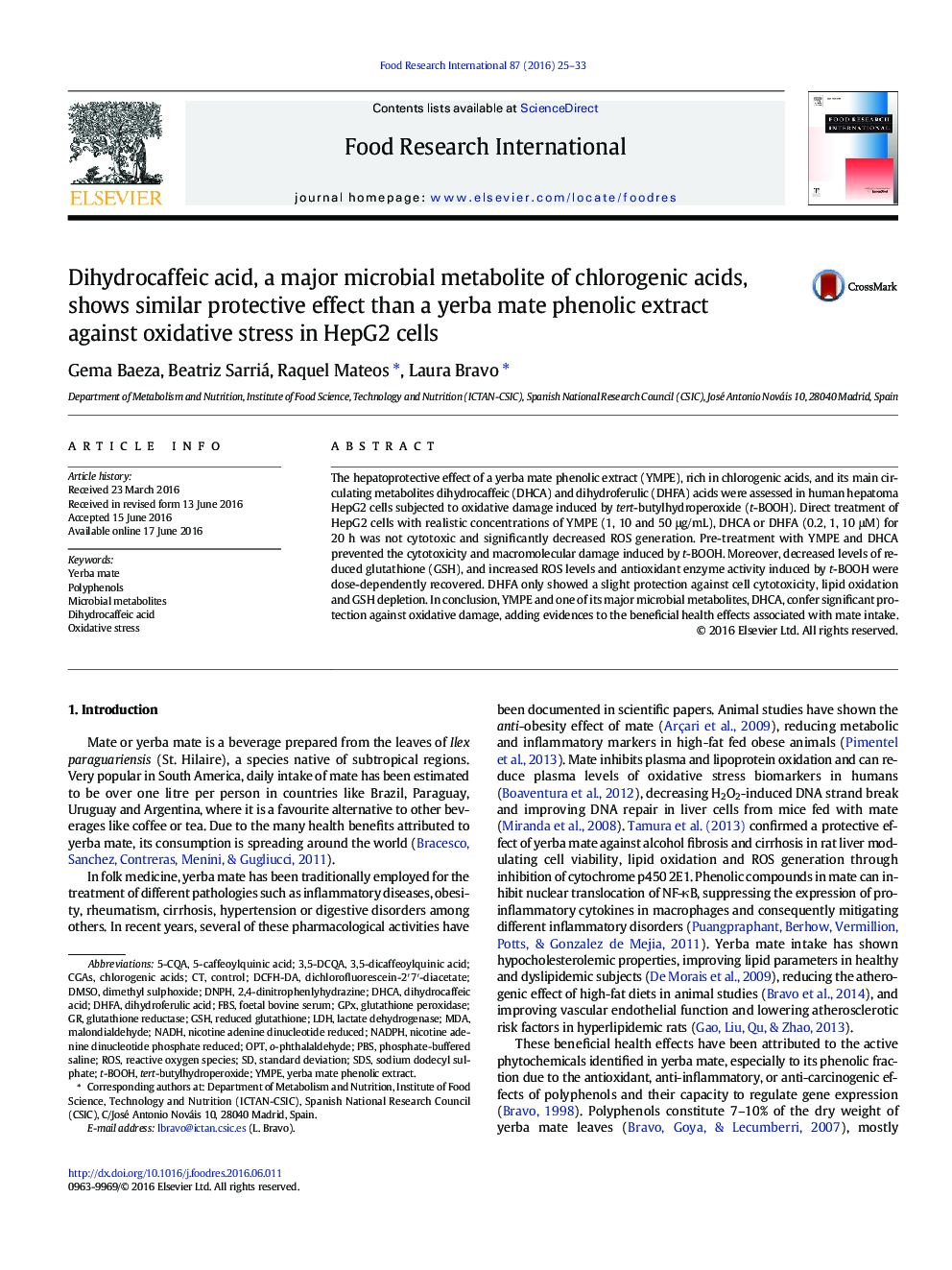| Article ID | Journal | Published Year | Pages | File Type |
|---|---|---|---|---|
| 4561196 | Food Research International | 2016 | 9 Pages |
•YMPE and their major microbial metabolites are not cytotoxic to HepG2 cells.•Direct treatment with YMPE, DHCA and DHFA decreases ROS generation in vitro.•YMPE and its metabolite DHCA show similar protective effect against oxidative stress.•DHCA could strengthen the effect of yerba mate at physiological concentrations.•The methylated metabolite DHFA was less effective than DHCA.
The hepatoprotective effect of a yerba mate phenolic extract (YMPE), rich in chlorogenic acids, and its main circulating metabolites dihydrocaffeic (DHCA) and dihydroferulic (DHFA) acids were assessed in human hepatoma HepG2 cells subjected to oxidative damage induced by tert-butylhydroperoxide (t-BOOH). Direct treatment of HepG2 cells with realistic concentrations of YMPE (1, 10 and 50 μg/mL), DHCA or DHFA (0.2, 1, 10 μM) for 20 h was not cytotoxic and significantly decreased ROS generation. Pre-treatment with YMPE and DHCA prevented the cytotoxicity and macromolecular damage induced by t-BOOH. Moreover, decreased levels of reduced glutathione (GSH), and increased ROS levels and antioxidant enzyme activity induced by t-BOOH were dose-dependently recovered. DHFA only showed a slight protection against cell cytotoxicity, lipid oxidation and GSH depletion. In conclusion, YMPE and one of its major microbial metabolites, DHCA, confer significant protection against oxidative damage, adding evidences to the beneficial health effects associated with mate intake.
Graphical abstractFigure optionsDownload full-size imageDownload as PowerPoint slide
